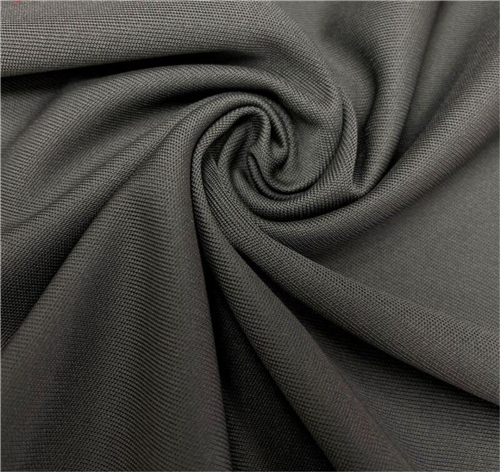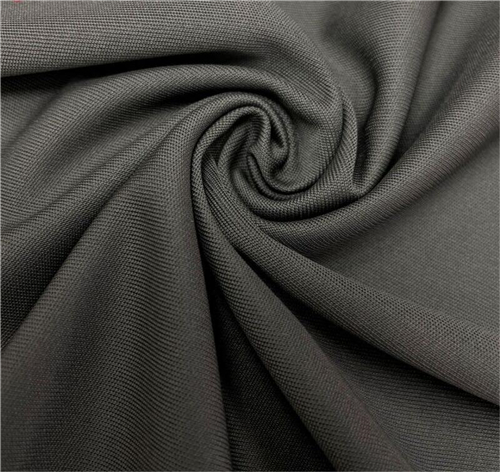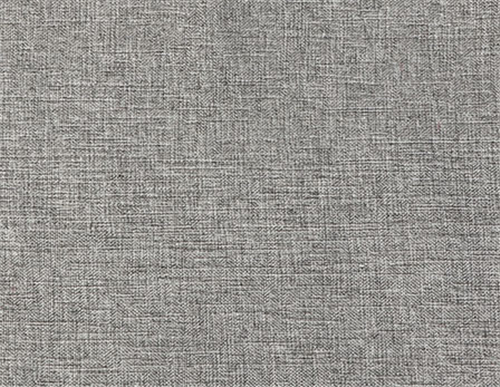

Sensitive skin requires extra care and attention, especially when it comes to choosing clothing fabric. The wrong fabric can irritate and cause discomfort to those with sensitive skin. It is essential to select fabrics that are soft, hypoallergenic, and breathable. This blog will explore the factors to consider when choosing clothing fabric for sensitive skin and the benefits of wearing clothing made from suitable fabric.
• Fabric Types: Opt for natural fibers like cotton, silk, bamboo, or linen. These materials are gentle on the skin and less likely to cause irritation compared to synthetic fabrics.
• Breathability: Look for fabrics that allow air circulation to prevent sweat build-up and reduce the risk of skin irritation. Natural fibers like cotton are breathable and can help keep the skin cool.
• Softness: Choose fabrics that are soft to the touch to minimize friction and irritation on sensitive skin. Fabrics like silk and bamboo are known for their smooth and silky feel.
• Chemical-Free: Avoid fabrics treated with harsh chemicals or dyes that can irritate sensitive skin. Look for clothing labeled as hypoallergenic or made using organic and natural dyes.
• Allergies: Consider any known allergies you have when choosing clothing fabric. For example, some individuals with sensitive skin may be allergic to wool or certain plant fibers.
• Comfort: Clothing made from suitable fabric provides a comfortable wearing experience for individuals with sensitive skin. It reduces itching, irritation, and overall discomfort.
• Reduced Allergies: Fabrics that are hypoallergenic and chemical-free minimize the risk of allergic reactions, making them ideal for sensitive skin.
• Breathability: Natural fibers allow air circulation, keeping the skin cool and preventing sweat build-up, reducing the likelihood of rashes or skin irritations.
• Durability: Clothing made from high-quality fabric tends to be more durable, saving you money in the long run as it lasts longer.
• Versatility: Suitable fabrics can be found in various clothing styles, allowing individuals with sensitive skin to dress in their preferred fashion without compromising comfort and skin health.
Choosing the right clothing fabric is crucial for individuals with sensitive skin. By considering factors such as fabric type, breathability, softness, chemical-free options, and allergies, you can ensure that your clothing is comfortable and gentle on your skin. The benefits of wearing suitable fabric go beyond comfort, as it reduces allergies, provides breathability, durability, and versatility in your wardrobe.

Cotton fabric is a popular choice for individuals with sensitive skin due to its natural properties that promote comfort and minimize irritation. Here are some key properties and benefits of cotton fabric for sensitive skin:
• Soft and Gentle: Cotton fabric is known for its softness and gentle touch, making it ideal for sensitive skin. It reduces friction and minimizes the risk of irritation.
• Breathable: Cotton is highly breathable, allowing air to circulate freely through the fabric. This helps to prevent sweat build-up and keeps the skin cool, reducing the likelihood of rashes or skin irritations.
• Hypoallergenic: Cotton is generally hypoallergenic, meaning it is less likely to cause allergic reactions or skin sensitivities. It is suitable for individuals with various allergies or sensitivities.
• Absorbent: Cotton has excellent moisture-wicking properties, absorbing sweat and moisture from the skin. This helps to keep the skin dry and prevents discomfort.
• Durability: Cotton fabric is known for its durability, making it a long-lasting option for clothing. It can withstand regular washing and wear, saving you money in the long run.
Not all cotton fabrics are the same when it comes to sensitive skin. Here are some types of cotton fabric that are particularly suitable for individuals with sensitive skin:
• Organic Cotton: Organic cotton is grown without the use of harmful pesticides or synthetic fertilizers. It is free from chemicals and toxins, making it a safe and gentle option for sensitive skin.
• Pima Cotton: Pima cotton is a high-quality cotton variety known for its exceptional softness and durability. It is less likely to cause irritation or allergic reactions.
• Supima Cotton: Similar to Pima cotton, Supima cotton is also known for its superior softness and durability. It is made from extra-long staple fibers, providing a luxurious feel against the skin.
• Bamboo Cotton Blend: Fabrics made from a blend of bamboo and cotton offer the benefits of both materials. The bamboo component adds extra softness and breathability, making it suitable for sensitive skin.
Choosing the right cotton fabric for sensitive skin can make a significant difference in the comfort and well-being of individuals. By considering the properties and types of cotton fabric mentioned above, individuals can select a fabric that suits their specific needs and ensures a comfortable wearing experience.

Bamboo fabric is gaining popularity as an excellent choice for individuals with sensitive skin. It offers a range of advantages and characteristics that promote comfort and minimize skin irritation. Here are a few key features:
• Soft and Luxurious: Bamboo fabric is known for its incredibly soft and smooth texture, providing a luxurious feel against the skin. It is gentle and non-abrasive, making it ideal for sensitive skin.
• Hypoallergenic and Antibacterial: Bamboo fabric has natural hypoallergenic properties, meaning it is less likely to cause allergic reactions or skin sensitivities. It also possesses antibacterial properties, which help to inhibit the growth of bacteria and odors.
• Breathable and Moisture-Wicking: Bamboo fabric has excellent breathability, allowing air to circulate freely through the fabric. This helps to regulate body temperature and prevent the buildup of sweat, reducing the risk of rashes or skin irritations.
• UV Protection: Bamboo fabric offers natural UV protection, shielding the skin from harmful sun rays. This is an added advantage for individuals with sensitive or easily sunburned skin.
• Eco-Friendly: Bamboo is a sustainable and renewable resource. It grows quickly without the need for harmful pesticides or fertilizers, making it an eco-friendly fabric choice.
There are various types of bamboo fabric available, each with its unique properties and benefits. Here are a few popular options suitable for individuals with sensitive skin:
• Bamboo viscose: Viscose bamboo fabric is known for its softness and breathability. It has excellent moisture-wicking properties, keeping the skin dry and comfortable.
• Bamboo Lyocell: Bamboo Lyocell fabric is made using an eco-friendly manufacturing process. It is exceptionally soft, breathable, and gentle on sensitive skin.
• Bamboo Jersey: Bamboo Jersey fabric has a slight stretch and is often blended with cotton or spandex. It is incredibly soft and comfortable against the skin.
• Bamboo Rayon: Bamboo Rayon fabric has a silky appearance and feels luxurious against the skin. It is breathable and hypoallergenic, ideal for those with sensitive skin.
Choosing the right bamboo fabric can enhance the comfort and well-being of individuals with sensitive skin. By considering the advantages and types mentioned above, individuals can select a fabric that suits their specific needs and ensures a comfortable wearing experience.
Silk fabric is known for its luxurious feel and is highly regarded as a desirable choice for individuals with sensitive skin. It offers a range of benefits and features that promote comfort and minimize skin irritation. Here are a few key characteristics:
• Hypoallergenic: Silk fabric is naturally hypoallergenic, making it suitable for individuals with sensitive skin. It is less likely to cause allergic reactions or skin sensitivities.
• Smooth and Soft: Silk has a smooth and soft texture that feels gentle against the skin. It helps to minimize friction and reduce the risk of skin irritation.
• Moisture-Wicking: Silk fabric has excellent moisture-wicking properties, meaning it can absorb and evaporate moisture quickly. This helps to keep the skin dry and comfortable, reducing the likelihood of rashes or skin irritations.
• Breathable: Silk allows air to circulate freely, improving ventilation and aiding in regulating body temperature. This can prevent the buildup of sweat and minimize the risk of skin discomfort.
• Soothing and Cooling: Silk fabric has a natural cooling effect, providing relief to sensitive or irritated skin. It can help soothe conditions like eczema or psoriasis.
There are various types of silk fabric available, each with its own unique properties and benefits. Here are a few popular options suitable for individuals with sensitive skin:
• Mulberry silk: Mulberry silk is considered the finest and most luxurious type of silk. It is known for its softness, durability, and hypoallergenic properties.
• Charmeuse silk: Charmeuse silk is known for its lustrous appearance and smooth, satin-like finish. It is lightweight, breathable, and gentle on sensitive skin.
• Organza silk: Organza silk is a sheer and lightweight fabric. It has a crisp texture and is often used for delicate garments. It is suitable for individuals with sensitive skin due to its breathability.
• Dupioni silk: Dupioni silk has a slightly coarse texture and a characteristic irregular slub. It is durable and offers a natural sheen. It is a great option for individuals with sensitive skin.
Choosing the right type of silk fabric can enhance the comfort and well-being of individuals with sensitive skin. By considering the benefits and options mentioned above, individuals can select a fabric that best suits their specific needs and preferences.
Hemp fabric is gaining popularity as a favorable choice for individuals with sensitive skin. It offers a range of properties and advantages that promote comfort and minimize skin irritation. Here are a few key characteristics:
• Hypoallergenic: Hemp fabric is naturally hypoallergenic, making it suitable for individuals with sensitive skin. It is less likely to cause allergic reactions or skin sensitivities.
• Soft and Breathable: Hemp fabric has a soft and breathable texture that feels gentle against the skin. It allows air to circulate freely, improving ventilation and aiding in regulating body temperature.
• Moisture-Wicking: Hemp fabric has excellent moisture-wicking properties, meaning it can absorb and release moisture quickly. This helps to keep the skin dry and comfortable, reducing the likelihood of rashes or skin irritations.
• Durable: Hemp fabric is known for its durability, making it a long-lasting choice for sensitive skin. It can withstand frequent washings without losing its quality or becoming abrasive.
• Antibacterial: Hemp fabric has natural antibacterial properties, which can help prevent the growth of bacteria on the skin and reduce the risk of infections or breakouts.
There are different types of hemp fabric available, each with its own unique characteristics and benefits. Here are a few popular options suitable for individuals with sensitive skin:
| Type of Hemp Fabric | Properties |
| Hemp Twill |
• Durable and textured • Offers a slightly heavier weight • Ideal for outerwear and jackets |
| Hemp Jersey |
• Soft and stretchy • Lightweight and breathable • Perfect for casual apparel and activewear |
| Hemp Canvas |
• Sturdy and strong • Has a firm structure • Suitable for bags, accessories, and upholstery |
Choosing the right type of hemp fabric can enhance the comfort and well-being of individuals with sensitive skin. By considering the properties and options mentioned above, individuals can select a fabric that best suits their specific needs and preferences.
An Introduction to Different Types of Fabric
2024-02-06
Unlock the secrets of fabric types and their properties with our comprehensive guide. From luxurious silk to durable polyester, explore the perfect textile for your needs. Choose wisely and elevate your clothing game today!
10 Polyester Manufacturers in 2024
2024-01-29
The polyester industry plays a crucial role in the global textile market, with a wide range of applications in various industries. From clothing and household textiles to industrial materials, polyester is a versatile and cost-effective choice for manufacturers worldwide. In this blog post, we will provide an overview of the polyester industry and its significance, as well as the factors driving the growth of polyester manufacturers in 2024.
Unveiling the Brilliance: Exploring the Wonders of UV Reflective Fabric
2024-01-22
UV reflective fabric is a type of fabric that is coated with a material that reflects UV light. This makes the fabric ideal for use in clothing, as it can help to protect the skin from the harmful effects of UV radiation. The fabric is also effective at reflecting heat.
Stylish Defense: UV Blocking Fabrics for Fashion and Function
2024-01-18
There are many benefits to wearing UV blocking fabrics. They can protect you from the sun’s harmful UV rays, help you stay cool in hot weather, and even help prevent skin cancer. UV blocking fabrics are available in a variety of styles and colors, so you can find the perfect one to suit your needs.